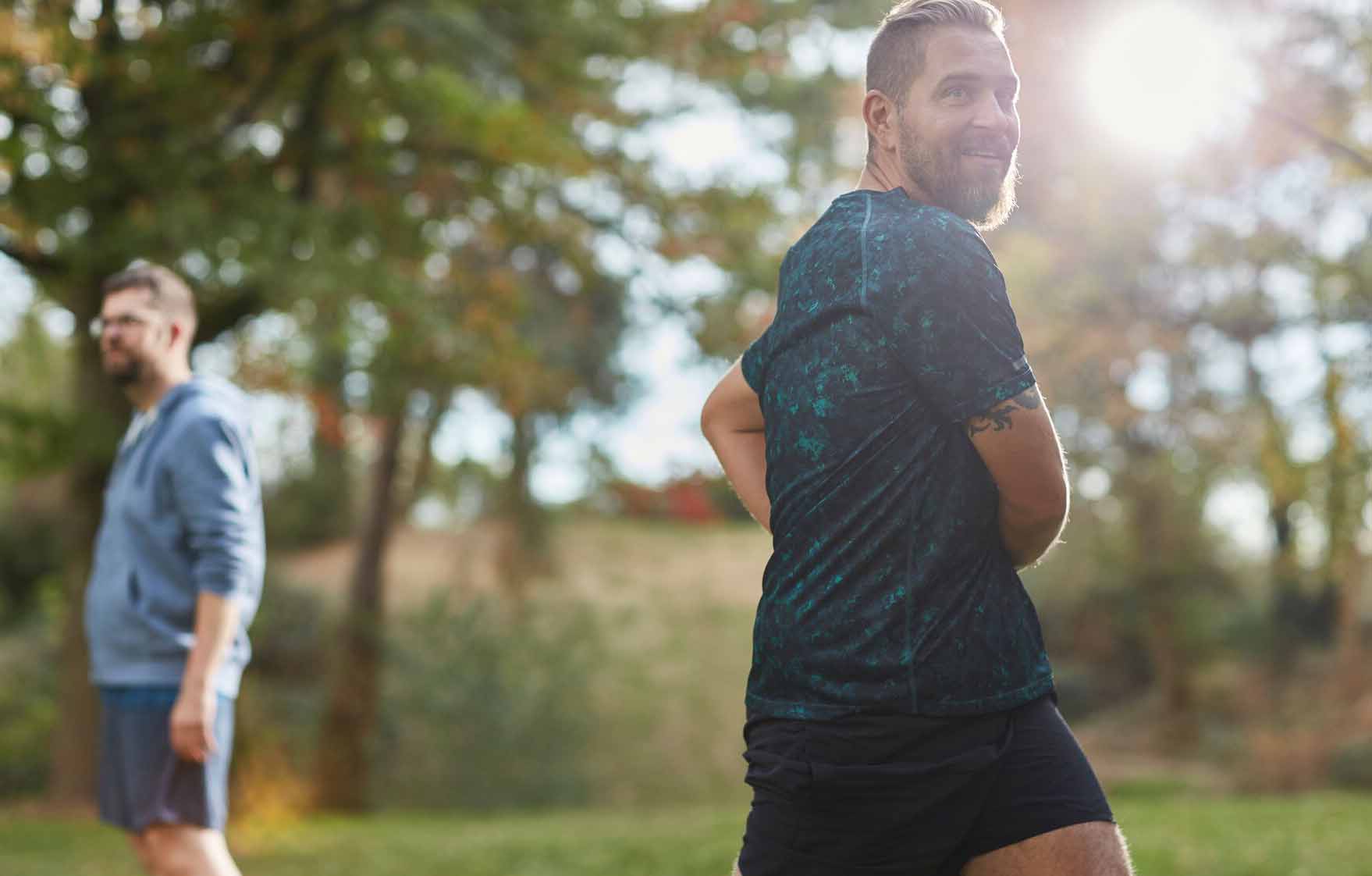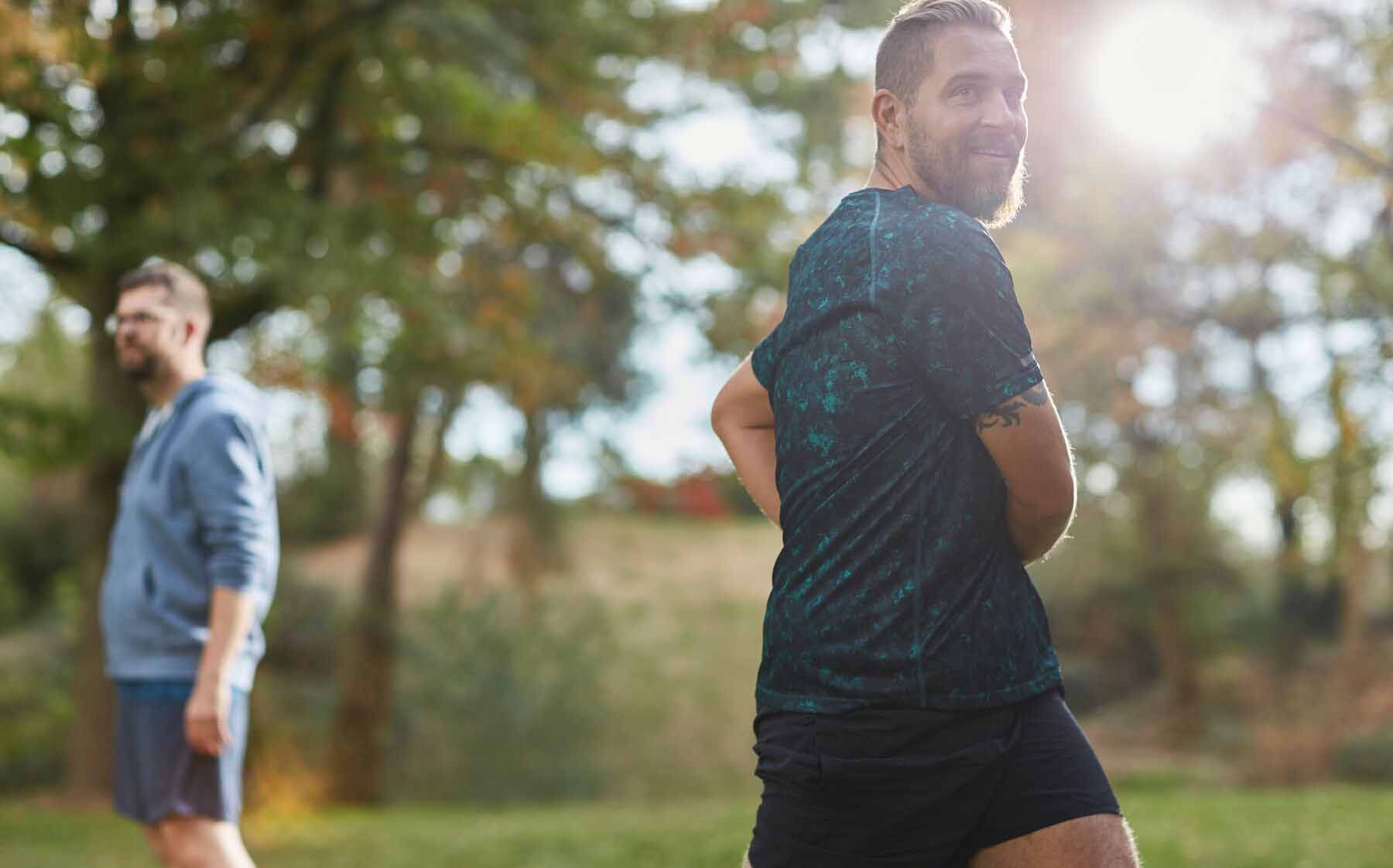Tips and tricks for better exercise recovery


Have you ever pushed yourself a little too far during a workout and ended up in pain? It happens. Early on in our fitness journeys, it can be easy to use improper form or go too far. And later, when we start seeing results from all our workouts, sometimes we can get a little cocky and push ourselves harder than usual and end up with an injury.
Of course, a workout injury is no fun, but it can also feel like a setback because the time you have to take for recovery can mean you lose momentum on your fitness journey. So, we asked a couple of experts for their exercise recovery tips to ensure you know how to protect your body and can keep your momentum going.
Pre-workout
When it comes to exercise recovery, the old adage rings true: ‘an ounce of prevention is worth a pound of cure.’
“The most important way to be sure of excellent exercise recovery is to use preventative measures,” says Rachel MacPherson, a personal trainer and writer at Radical Strength. “This means being sure to warm up your muscles appropriately before exercise.”
She notes that stretching cold muscles prior to exercise is no longer recommended – “think about stretching a cold elastic band!” Instead, “warm up with light cardiovascular exercise and some dynamic movements. If you are lifting weights, try warming up with lighter weight for each targeted muscle group before moving on to heavier weights.”
During your workout
To ensure fast recovery, MacPherson says it’s vital that you don’t over-exercise or over-train.
“Make sure to give your muscles a day off between heavier strength training exercise sessions,” she says.
She recommends doing full-body strength training every other day, three or four days a week, with active rest on the days in between – think activities such as yoga, walking or biking.
If you think you might have overdone it, MacPherson suggests watching for these symptoms of over-training:
- Soreness or limbs feeling tired and heavy.
- Increased incidence of sickness and colds.
- Pains and injuries from overuse.
- Mood disturbances.
- Sleep disturbances, especially insomnia.
- Feeling the need to rest more while exercising.
- Inability to get motivated.
Post-workout
“Post-exercise, be sure to fuel your body with high-quality nutrition, including carbohydrates,” says MacPherson. “Protein and fats are also important.”
She recommends 30 grams of carbohydrates and 15-25 grams of protein post-workout to aid in muscle recovery and refuel your glucose stores.
“Choose foods that are nutrient-dense for maximum benefit.”
And though you may not think so, equally important to your post-workout nutrition is sleep.
“Sleep and rest periods are when our muscles repair and recover the most,” MacPherson says. “Even losing a little sleep night in and night out will be quite detrimental to our recovery and performance. Aim for 8-10 hours of uninterrupted sleep every night.”
In the event of injury…
Now if you do end up going too far and hurting yourself, acknowledge it and focus on helping your body heal.
“With acute injury or soreness, get into the habit of icing right away,” says Dr. Thanu Jey, clinic director at Toronto’s Yorkville Sports Medicine Clinic.
“Your body responds by creating inflammation in the injured area, making it difficult for you to move while you heal,” he explains. “Icing will decrease the amount of inflammation and decrease your healing time so you can get back to activity sooner.”
And remember, he says, icing is most effective soon after the injury and becomes less effective with the passage of time.
MacPherson suggests trying muscle rubs or baths with menthol and Epsom salts to help ease muscle soreness. She also notes there is some evidence that infrared saunas – which she uses herself – can speed recovery and says they are worth a try.
You can try different things to see what works for you – just listen to your body.
MacPherson sums it up: “Remember to take care of yourself and your body will reward you with better function!”
